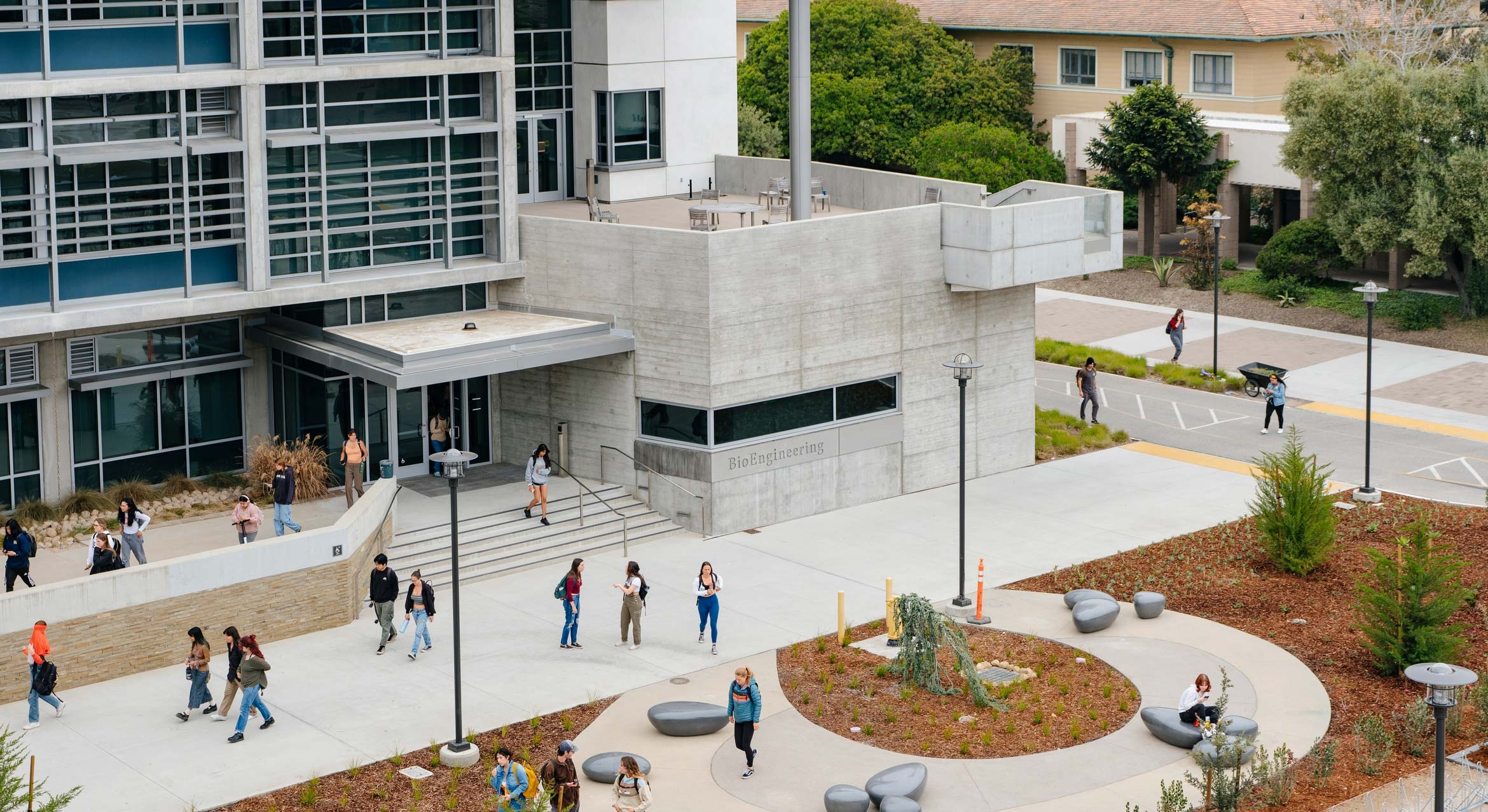Two University of California, Santa Barbara professors have been elected members of the prestigious National Academy of Engineering.
Alan J. Heeger, a professor of materials and of physics, and Evelyn L. Hu, a professor of
materials and of electrical and computer engineering, were among 74 new members and seven foreign associates elected in balloting by the academy's members, the results of which were announced in Washington on February 15.
The National Academy of Engineering is an independent, nonprofit institution that provides leadership and guidance to the nation on the application of engineering resources to vital problems and issues. Established in 1964, it operates under the congressional charter granted to the National Academy of Sciences in 1863.
Election to the National Academy of Engineering is one of the highest professional distinctions that can be accorded an engineer. Academy membership honors those who have made "important contributions to engineering theory and practice" and those who have demonstrated "unusual accomplishment in the pioneering of new and developing fields of technology."
The academy cited Heeger for co-founding the field of conducting polymers and "for pioneering work in making these novel materials available for technological applications." Heeger shared the 2000 Nobel Prize in chemistry for his work on conducting polymers.
Hu was cited for her contributions to the processing of semiconductor structures and devices. Hu is co-director of the California NanoSystems Institute, operated jointly by UCSB and UCLA. It is one of four California Institutes for Science and Innovation that were established by Gov. Gray Davis with the support of the California Legislature. The institutes are sponsored by private industry as well as the state.
UCSB Chancellor Henry T. Yang, himself a member of the engineering academy, called the election of Heeger and Hu "a wonderful honor that brings distinction to our community as well as to this university. Being elected by one's peers is a significant testament to creativity and achievement as well as to years of dedication and hard work. I salute my distinguished colleagues, and I know that our campus community shares in their excitement."
Both Heeger and Hu teach in the College of Engineering; Heeger also holds an appointment in the College of Letters and Science. UCSB's College of Engineering now has 18 faculty members who have been elected to the National Academy of Engineering. Matthew Tirrell, dean of engineering at UCSB and a member of the academy, said Heeger and Hu "have been leaders of the College of Engineering over the last two decades, and their election to the National Academy of Engineering is a very fitting recognition of both their accomplishments and the high regard in which they are held by their colleagues."
Alan Heeger has been a member of the UCSB faculty since 1982 and was director of the Institute for Polymers and Organic Solids for 17 years, until 1999. A company he co-founded, UNIAX, focuses on bringing plastic electronics to the commercial market. The recipient of many awards and other distinctions, he is a fellow of the American Physical Society and a member of the National Academy of Sciences.
Evelyn Hu joined the UCSB faculty in 1984 and has served as director of the Santa Barbara component of the National Science Foundation's National Nanofabrication Users Network. She also has headed UCSB's Center for Quantized Electronic Structures, or Quest, one of the National Science Foundation's Science and Technology Centers. She has won awards for her teaching as well as her research, and is a fellow of the American Physical Society, the American Association for the Advancement of Science, and the Institute of Electrical and Electronics Engineers.
Wm. A. Wulf, president of the National Academy of Engineering, said the recent election brought the organization's total U.S. membership to 1,857 active members and 250 members emeriti, and the number of foreign associates to 158.



